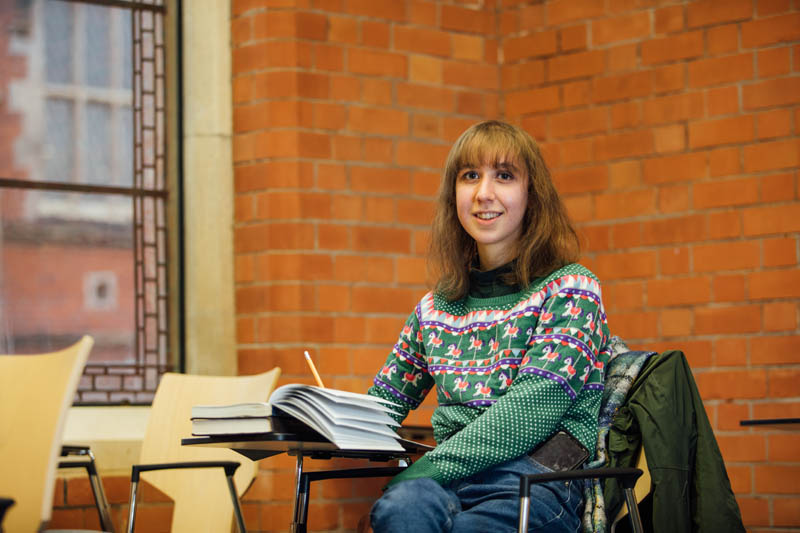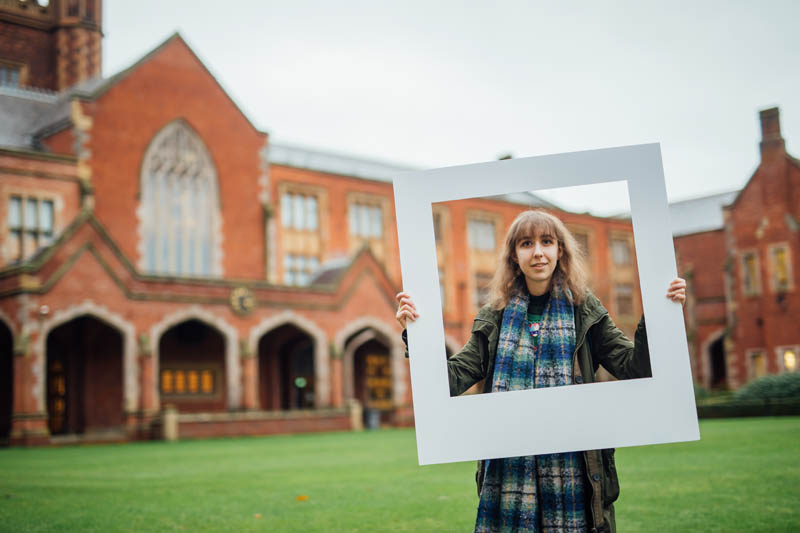Student Stories
"Understanding a little bit more about how my mind works has enabled me to see that everyone's mind works a little differently"
I came to the conclusion that I was somehow 'wrong' or ‘broken’, but I wasn't
I suffered with depression and anxiety constantly throughout high school. Part of what made that so difficult and scary at times was that I couldn't really understand where those feelings came from, you know – or why they were so extreme. For example, my panic attacks, my depressed mood and fear seemed to be triggered by things that many people would see as fairly inconsequential – like finding myself running five minutes late or having to make a change in routine. I knew these things weren’t a huge deal in themselves, but I also couldn't see why they affected me so much.
I thought I was ‘broken’ or ‘wrong’, but I wasn’t
So I came to the conclusion that I was somehow 'wrong' or ‘broken’. This set me on a downward spiral that eventually lead to a mental health crisis. It was after this a psychologist suggested I may have autism. When the assessment results came back and I was given a diagnosis of Autism Spectrum Disorder at the age of 17, well, it was like someone had turned the lights on. Suddenly I had a means of understanding and making sense of why I sometimes felt the way I did. I wasn't broken or wrong. It was a liberating moment and it allowed me to engage much more with therapy and start to enjoy life as an undergrad, socialising and finding new interests.

2020 was pretty difficult for me as lockdown took away a lot of my routine and ability to plan and prepare – which is a big part of how I look after myself. During the first lockdown I channelled a lot of my fear and anxiety into food and eating, which led to me being diagnosed with anorexia. Of course, all of that added to the already massive challenge of moving to Belfast and starting my Masters programme.
Anyone can benefit from recognising what makes you feel safe
However, my experience with mental health has taught me two things. The first is how important understanding yourself is. Getting my ASD diagnosis was a breakthrough for me, but I think anyone can benefit from knowing what affects your mood, recognising what makes you feel safe and what you find helpful in hard situations.

Understanding a little bit more about how my mind works has not only helped me look after myself better, but it’s enabled me to see that everyone's mind works a little differently. If we recognise that, we can make it more normal to talk about mental health as an important part of our everyday life, not just something to deal with in a moment of crisis. That’s got to be a good thing, hasn’t it?
It pays to be up-front about your concerns – because help is available
The other thing my experience has taught me is that it’s good to be open and honest especially when it comes to university. When I started at QUB I wasn't sure if I wanted my school to know about my ASD. I hesitated, but in the end I'm so glad I did talk about it with the Disability and Wellbeing Service. There's lots of support options available here, and adjustments that can be made to make sure the university can accommodate your needs. So it pays off to be up-front and honest about your concerns and any issues and say you'd like help. You won’t be judged or criticised, but you will get support. That’s good to know, isn’t it?

Get Support
Mental Health issues can affect anyone at any time. But confidential, professional help is available through the University.
To find out more, click the button below:
#QUBeWell

It pays to be up-front about your concerns – because help is available
